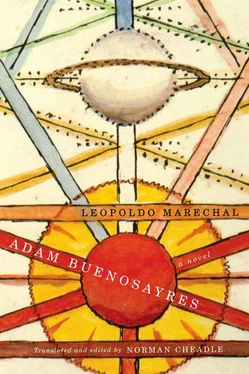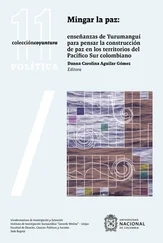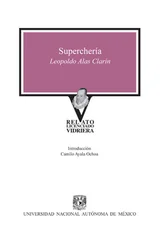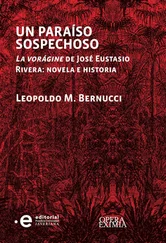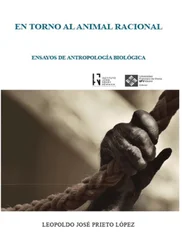— Now that the proper hierarchy has been restored, he scolded through clenched teeth, tell me what it is you want here.
— Entry to this inferno, answered Schultz, indicating the backdrop.
Samuel laughed heartily:
— Entry! he chortled. What nerve! A guy busts his ass studying metaphysics, and along comes a pair of mulattos wanting in, just like that!
— I demand it, rejoined Schultz with energy.
Grumbling, Samuel Tesler reluctantly began to come down off his high horse:
— You would qualify to enter, he admitted to the astrologer, even though your metaphysical education is strictly nil. Ha! Only a mulatto like you could have made such a hash of distributing the four elements thoughout this Helicoid. Someone else might have ordered them hierarchically and according to the nature of the passions described herein: earth first, followed by water, air, and finally fire. As for ether, source and matrix of the other elements, it should have been reserved for the sinister character who reigns in the Great Pit. But what’re ya gonna do? We live in a country full of mulattos.
With a mixture of severity and irony, Samuel Tesler turned to me:
— As for you, he grumbled, no merit qualifies you to visit the eighth circle.
— Effendi! I cried, stung to the quick.
— The only card you can play in your favour is your poetry, with its laughable stabs-in-the-dark at philosophy. True, lately you’ve been flirting with the two Eves and have even perpetrated the metaphysical murder of a certain Solveig, woman of the earth. But there’s no indication any of it goes beyond a paltry exercise in literature.
— In any case, Schultz told him, you will allow him to pass under my guarantee.
— He’ll have to pass a test, cackled the philosopher, immovable.
— What test? I said, tired of all the haggling.
— Decipher the figures on my back!
Samuel turned on his heels. On the back of his kimono, a figure halfman and half-flower leaned over a pool of water fed by a spring gushing from the roots of an emblematic tree.
— What do you see? the philosopher asked me.
— Bah! I answered. It’s an ordinary, garden-variety image of Narcissus.
— What is Narcissus doing?
— His boring old routine of leaning over the waters.
— What waters?
— The waters that spring from the fons vitae or fons juventutis , at the foot of the Tree of Life, in the centre of Paradise.
Samuel Tesler could not hide his pique:
— Fine, he said. Though, of course these are very common notions that everybody knows about. But tell me: according to the mythologists, didn’t Narcissus drown when he tried to see his image in the spring?
— There are two Narcissuses, I answered. The one who drowns and the one who is saved. The one depicted on your back is the one who is saved.
— How is he saved?
— The first Narcissus, the one who drowns, manages only to see his own image, his closed ego, his individual form. When he looks at himself, he falls in love with himself and doesn’t get beyond his ego: he’s a non-transcendental Narcissus. The second Narcissus, when he leans over the fons juventutis , sees the first Being, cause and motor of all that is manifest. Then he forgets his limiting ego and loses sight of himself; and losing sight of himself, he becomes enamoured not of his ego but of the Being whose immutable unity, beauty, and infinity he sees now in the mirror of the waters. This Narcissus leaves his form to take on the form of what he loves: he’s a transcendental Narcissus.
I can admit it now: the tone of my speech, whether or not it was the product of a direct inspiration, apparently rubbed Samuel Tesler the wrong way. Turning around to face me again, the philosopher glared at me like a basilisk:
— You’ve been peeking at my notes! he shouted. More than once I’ve caught you poking your nose into my papers.
— Eye of Baal! I protested. That’s defamatory!
The philosopher grunted mistrustfully a moment longer.
— Hmm! he muttered as if to himself. These mulattos’ll plagiarize a guy right down to his style of walking!
All obstacles having apparently been overcome, Samuel Tesler, still growling, ordered us to follow him. And so we did, first through the grey curtain I’ve already mentioned, then through a confusion of draperies of increasingly subtle material. When we finally got clear of the last one, we found ourselves in a city whose cold pulchritude confused me: grave architectures, arithmetical gardens, severe sports facilities were arranged there — I noticed this immediately — in a malignantly rigorous order. Later, at journey’s end, musing over everything and everybody I’d seen in the Hell of Pride, it was this unrelenting order that struck me as perhaps the most perverse of all Schultz’s inventions, for it suggested a rigid regime of automatons leaving no room at all for the exaltation of truth or the play of life. Samuel, meanwhile, whose job had been to guide us into this part of hell, showed no signs of going back to his curtain. On the contrary, tightly enfolded in his kimono, horned brow held high, he made a gesture inviting us to follow him. I looked at Schultz, as though asking whether the philosopher had any business here; and at Schultz’s nod, I understood that Samuel Tesler was to be our mentor in the City of Pride.
So we set out walking along a gleaming cobblestone street, bereft of the slightest human murmur. I was wondering if the city was deserted, when Samuel, rounding a bend in the road, showed us the first contingent of prideful souls. I recognized a stadium like the ones they use for track meets: an oval-shaped cement track girded by railings and amphitheatrestyle seating. A team of men in track shorts and shoes were running laps, mechanically jogging along and making no effort to overtake one another. When we got closer to the track, I noticed the runners weren’t even sweating: abstract, machine-like, they trotted endlessly round and round before the empty seats in a nightmarish silence. Samuel Tesler pointed an implacable index finger in their direction:
— And they call themselves philosophers! he burbled with laughter. A bunch of black beasts! But take a look now!
He searched feverishly until he found he what he seemed to be looking for — a lengthy pole.
— Now watch! I plan to knock two or three of these mulattos on their arses. Upon my word, I’ll rub their noses in the dirt of the track!
Without another word, the philosopher stuck his pole out at the runners. One of them tripped, tumbled off the track, and quickly got up again.
— Despite all obscurantist manoeuvres, panted the runner, the truth remains intact!
— What is the truth? Samuel asked him.
The athlete raised a professorial index finger:
— In the beginning there was matter (in Greek, hile ), he said, no matter what the inventors of worlds-beyond may preach, as Comrade Friedrich 155would say. I look around me with these eyes that cannot lie. What do I find? Living matter, nothing more than matter! 156
Samuel Tesler turned to us:
— A mulatto of the finest kind! he exclaimed gleefully.
And confronting the athlete again, he asked him:
— So you still believe in that blasted nebula? And that the nebula started spinning out of diddly-squat? And that out of diddly-squat sprouted all the excellent things of this world, the vermiform beginnings, the animalia reptilia , the corporal immensity of the whale, the flying creatures of strong wing, the quadrupeds of ponderous gait, and at last man, the microcosm?
— It’s the scientific truth, said the runner.
Without hiding his boredom, the astrologer Schultz intervened affably:
— Let him go, and find me another one, he told Samuel. We’re not here to listen to those old wives’ tales.
Читать дальше
